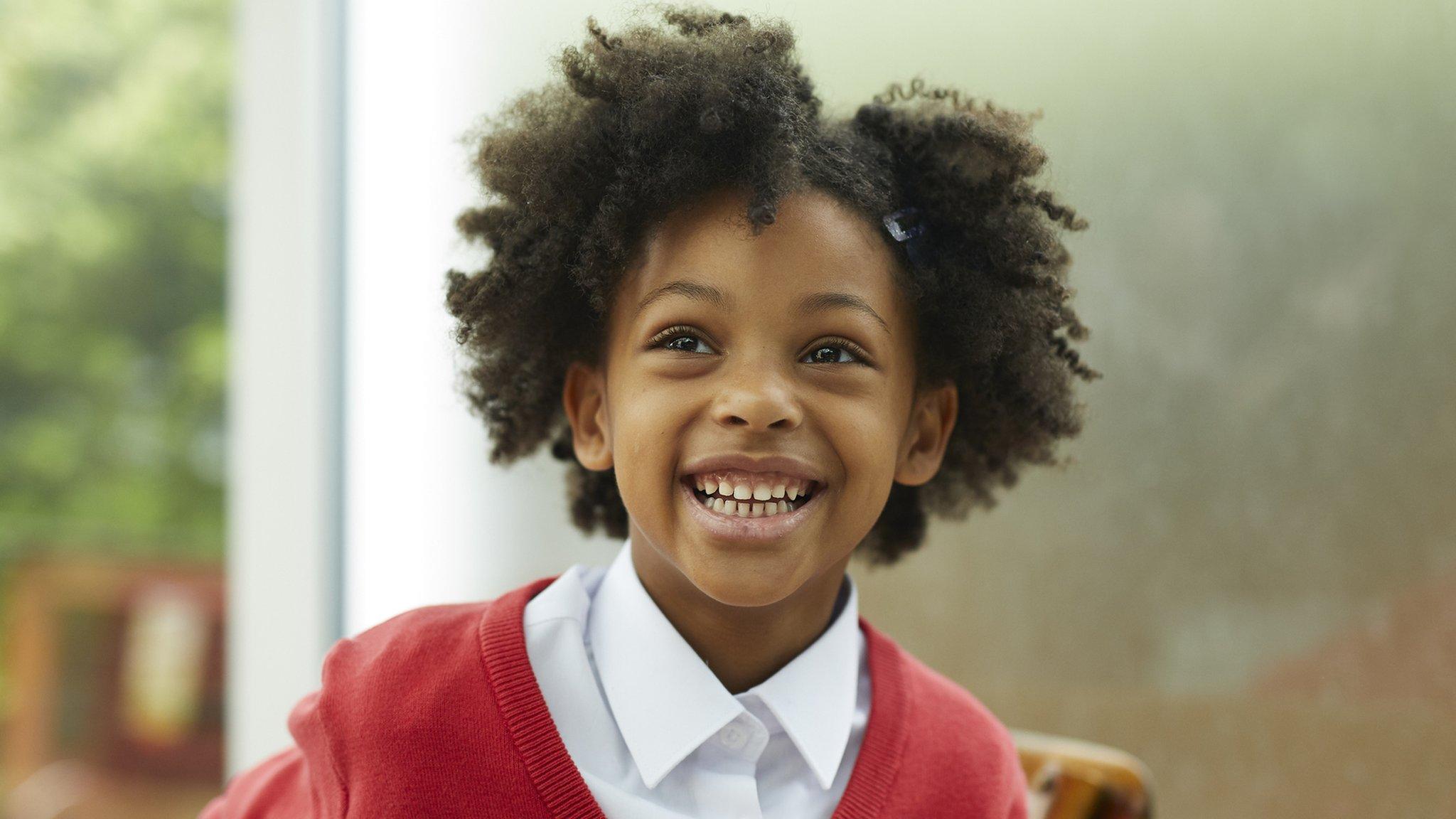Are my braids doing more harm than good?
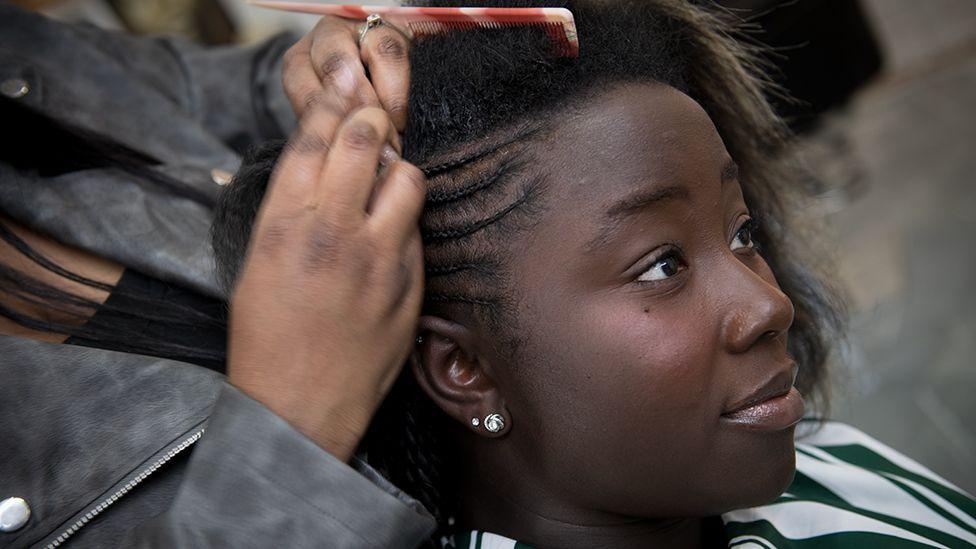
A new study is raising concerns about the synthetic hair used in braiding
- Published
Braids are one of the most popular hairstyles for black women, worn by celebrities and aunties alike - but questions are being raised about its effects on our health.
The process can last up to five hours as stylists deftly part small, evenly-spaced sections of hair, and gradually add in extensions.
Despite the long salon visits, braids have always been closely linked to convenience for me.
Growing up, they were for holidays, as the style meant that instead of fretting over how frizzy my hair would get, I could jump in the pool with no worries.
Braids are still what I turn to now when I want a few months break from all the detangling - or I want to try a new colour without the potential damage of hair dye.
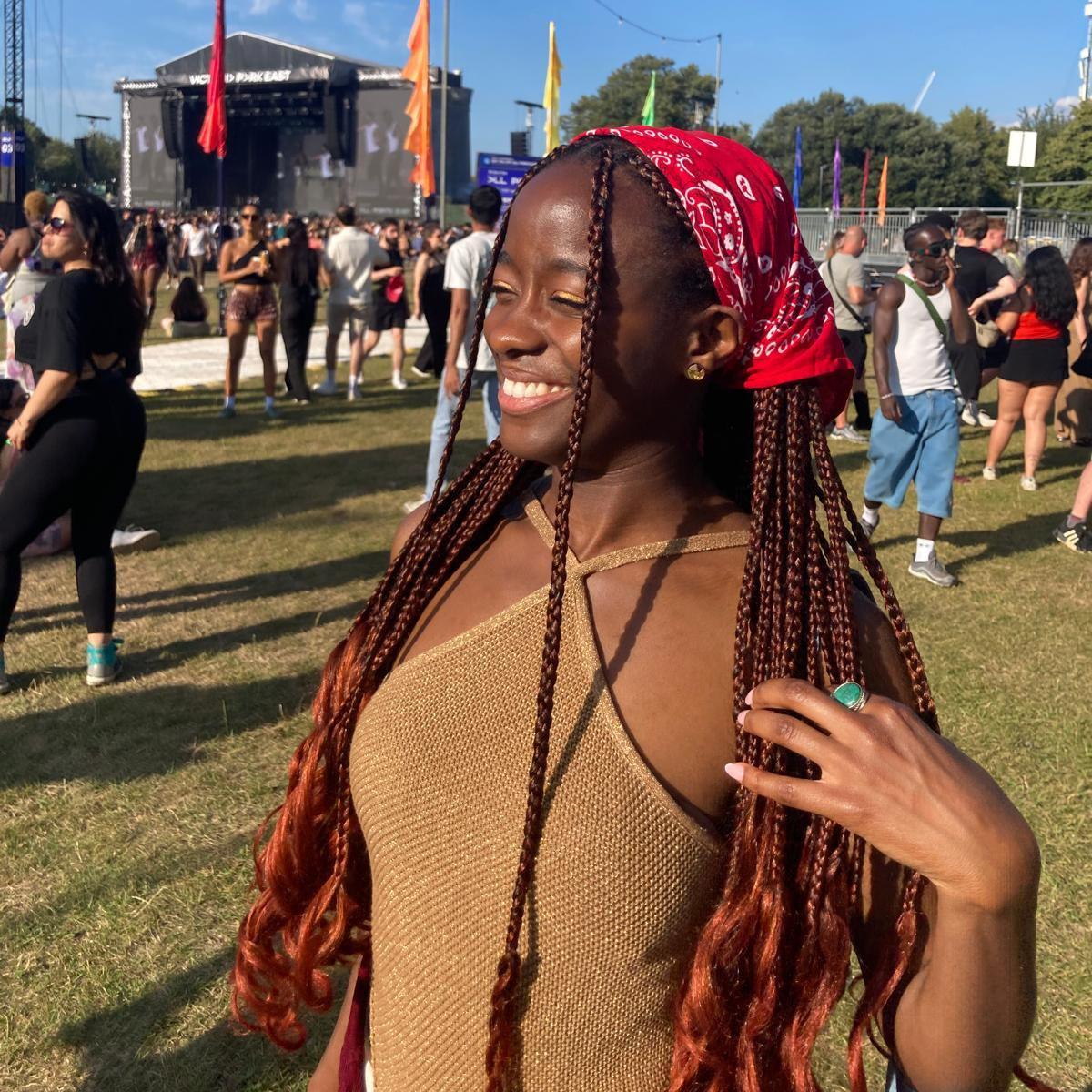
Braids are my go-to style, especially for big occasions
But a new study suggests that the synthetic hair many black women use to achieve this style could be bad for their health.
The US non-profit organisation Consumer Reports tested samples from ten of the most popular brands of synthetic braiding hair, and found that all of them contained carcinogens, and in some cases, lead.
The research made an impact, as my Instagram feed, external and WhatsApp groups were flooded with links to the study, warning of the alleged risks hidden in our hair.
One of the messages was from my cousin, Rochelle, who does her braids herself every other month.
"Braids, famously, are called a protective style," she later told me.
It's a term typically used to describe several Afro hairstyles, including braids, locs and wigs, that reduce how much your hair is exposed to the elements and cut back on constant styling.
"The fact that this style is doing everything but protect us - it's actually harming us - is actually quite wild to me."
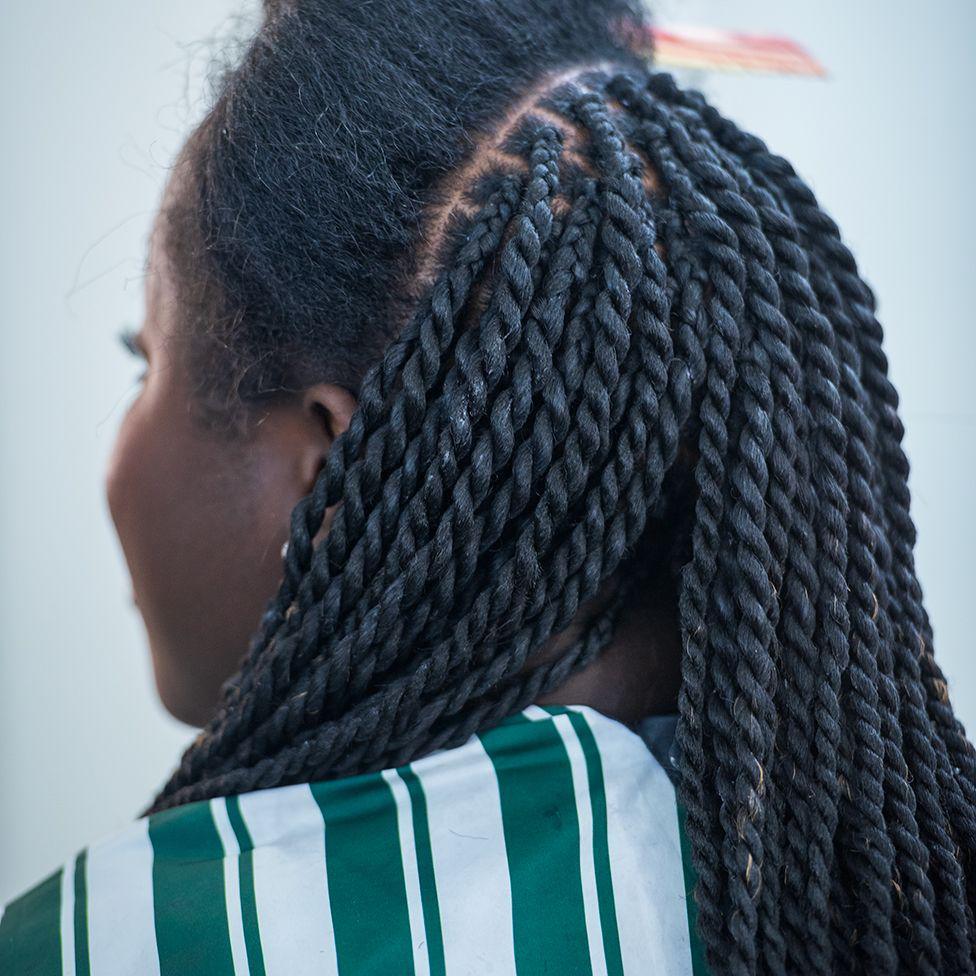
The study suggests synthetic hair in braids could contain cancer-causing chemicals
It is the lack of awareness among black women that is most concerning, she adds.
"People that are eating unhealthy food or smoking, they know that what they're doing could harm their body, whereas if you're putting braids in your hair, you're not thinking that it's harming you."
James Rogers, the head of product safety testing at Consumer Reports, says that the results are a cause for concern because women have "constant contact" with harmful chemicals if their hair is in braids, often for months at a time.
"We believe that whenever you're exposed to harmful chemicals, that it's cumulative - it all adds up."
But he also emphasised that more research was needed, saying: "We're hoping that this begins the conversation, not only at the regulatory level, but also amongst our own communities, about sharing accurate information."
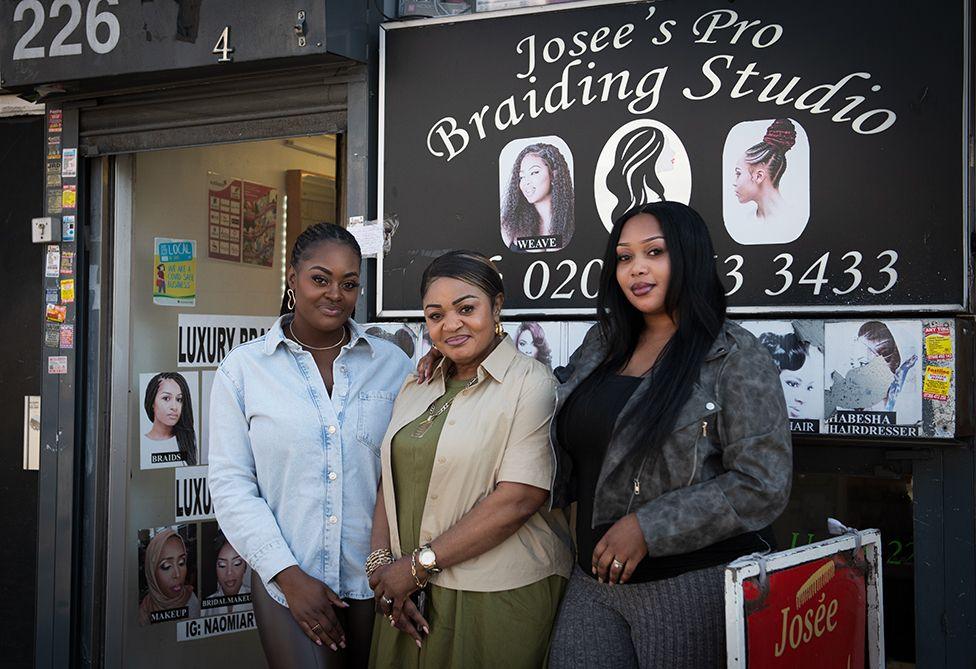
For almost 30 years, Josée (middle) has run her own salon with her daughters Abigail (left) and Naomi (right)
Here at Josée's Professional Braiding Studio in north London, the study certainly isn't putting clients off.
Josée and her daughters Abigail and Naomi, who work with her in the salon, have seen interest from new customers, especially after they helped to create the wig worn by Elphaba in Wicked, one of highest-grossing movies of 2024.
"People were shocked by how versatile we can be with our braiding," Abigail tells me, adding that her mum received several messages from clients telling them how proud they were.
Josée says that while the findings are "worrying", it has been business as usual at the salon.
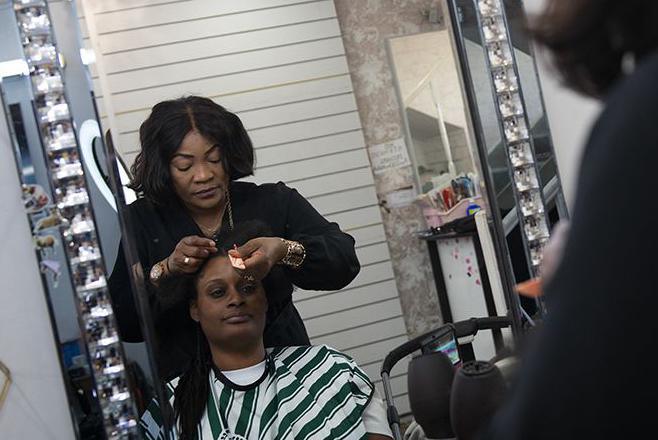
Kellie-Ann has started looking for alternative brands after the study came out
Some of her customers, however, have been rattled by the research.
It's Kellie-Ann's first time getting her braids done at Josée's salon, but she has been wearing the style since she was a child.
She tells me she felt betrayed after reading the study: "I think it's awful that companies have been doing this for years to black women and I think we deserve better."
She's now seeking out brands free from harmful chemicals and plastic - and says many of her friends are doing the same.
"A lot of women I've spoken to about it have agreed that biogradable would be better - it's good for the planet as well."
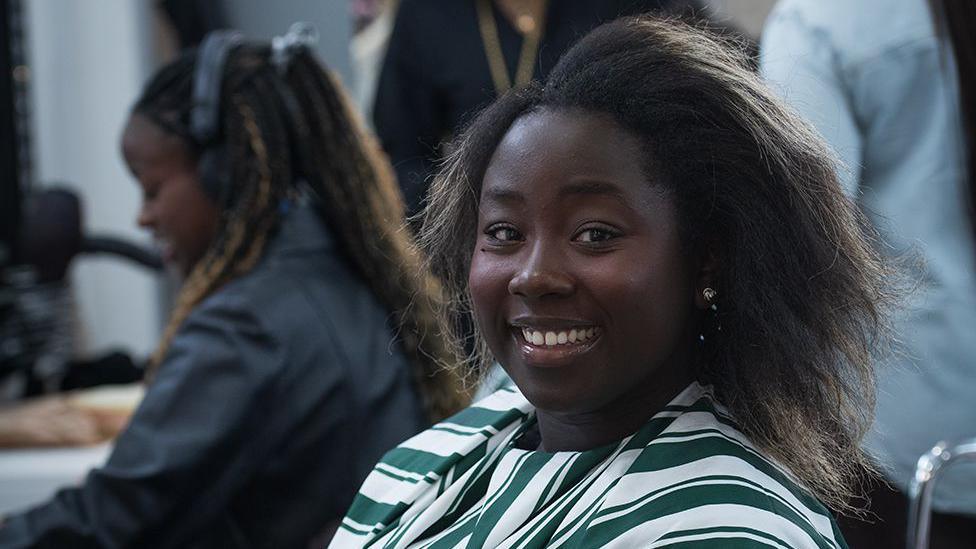
Ifeanyi wants to see more of a commitment to safer products from the black hair industry
Ifeanyi has also worn braids since childhood, and says they are the easiest and most convenient style to handle while she's busy studying at university.
She argues that the study is not alarming, pointing out that people may come into contact with carcinogens every day, in certain processed foods, alcohol and tobacco, external.
"Obviously you want be cautious - I just think that it's not necessarily something to completely abandon the style or the hair for."
She's concerned that the social media posts she has seen will "scare people out of wanting to engage", to the detriment of a critical source of income for black entrepreneurs working in the hair industry.
In 2021 Treasure Tress, external, a UK-based beauty subscription for black hair, found that black British women spent £168m a year on hair products. Earlier research by L'Oreal suggested that black women in the UK spend six times more on their hair than white women.
"I'd like to see more of a commitment to making sure that things are safer for us, rather than telling us that some of our historical, traditional practices as black women are wrong," Ifeanyi says.
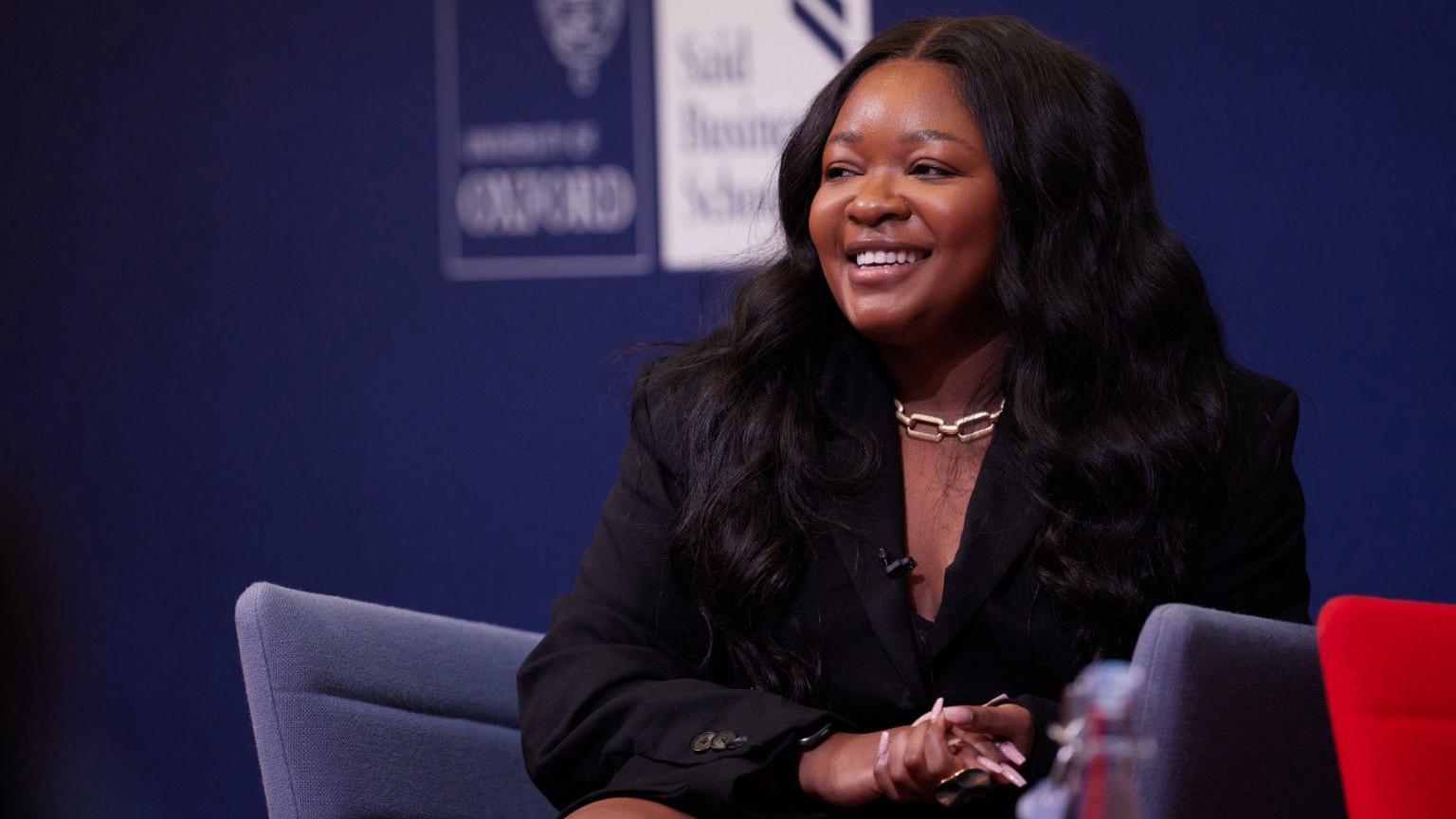
Tendai Moyo founded Ruka during the pandemic
For some, changing attitudes towards synthetic hair are opening up business opportunities.
Tendai Moyo co-founded Ruka Hair in 2021, which specialises in extensions made from natural hair sourced from South East Asia, as well as biodegradable synthetic hair, made from collagen fibre.
She tells me they have seen a "huge uptick in demand", especially in the US, where the study was published.
But she sees this as part of a wider trend, which stretches beyond concerns raised by the new research.
"We launched in the pandemic, and people were like, 'Oh, but salons are closed', but we were selling out because people don't stop doing their hair."
She tells me that black women "got to experiment" more with their hair during lockdown and were more willing to try out new products.
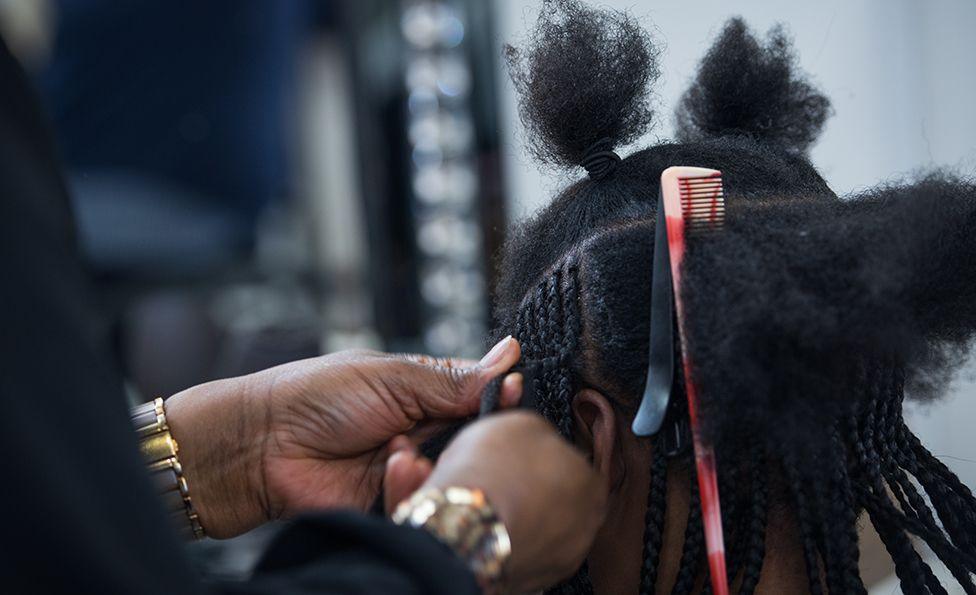
Tendai thinks more women turned to braids during lockdown
One of the biggest draws of traditional synthetic hair brands, however, is their low price, which has made experimenting with different styles and colours affordable for years.
But newer brands tend to have a higher price point - Tendai tells me that Ruka's most popular synthetic hair type costs around 2.5 times more than several high street brands.
Ifeanyi says that, as a student, brands like Ruka are out of reach for her: "To purchase the hair is equivalent to the amount it would cost you to get the hairstyle done, so you're essentially doubling the price."
Tendai defends this by comparing it to choosing between "fast food and healthy food".
She adds: "You can actually reuse our products if you'd like, and therefore you're saving money in that way."
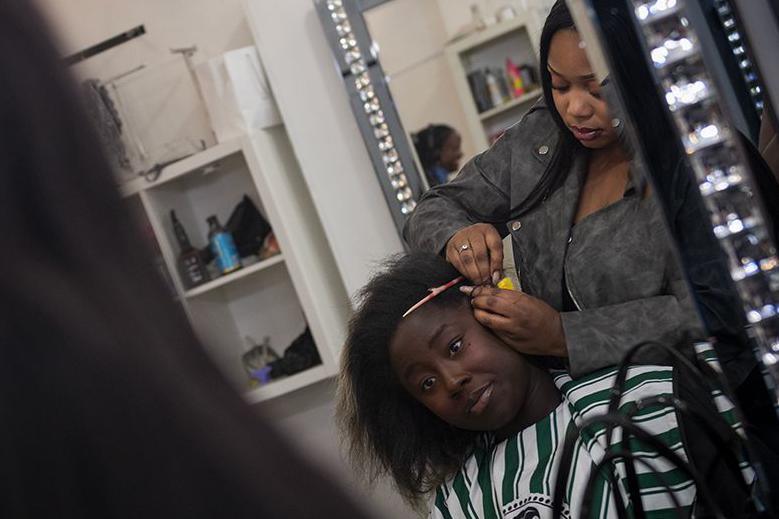
Naomi says her job empowers other women - and herself
Back at Josée's salon, Naomi tells me that braiding is not just an important source of income, but a valued cultural practice that brings her family together.
"I call myself a braid baby because I've been braiding since I was 6 years old," she says, telling me how her family would bond over the skill as her mum proudly looks on.
"It's an empowering service to offer," she adds, saying that it's gratifying to do a job that leaves other women feeling uplifted.
Despite growing concerns about the effect it could have on our health, braiding is a precious heirloom for this family - and for many other black women - passed down from generation to generation.
As Ifeanyi tells me: "The form of extensions might change, but I don't think the practice of getting braids is going anywhere."
- Published24 April 2023
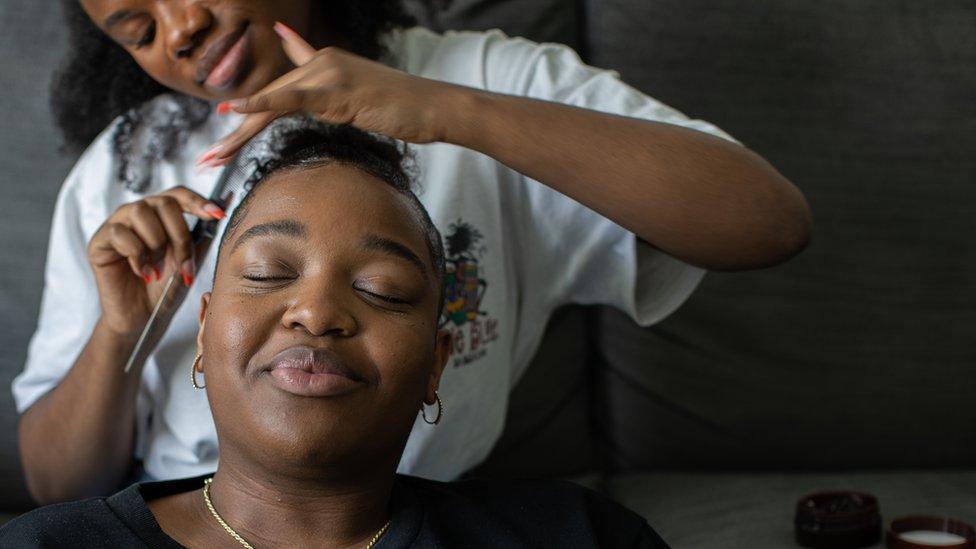
- Published5 May 2022
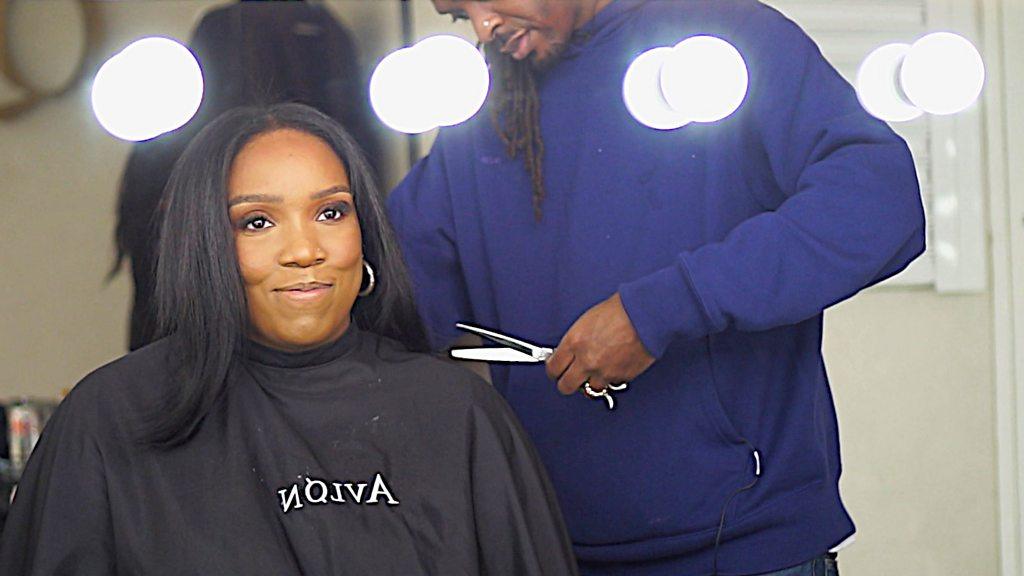
- Published26 September 2023
